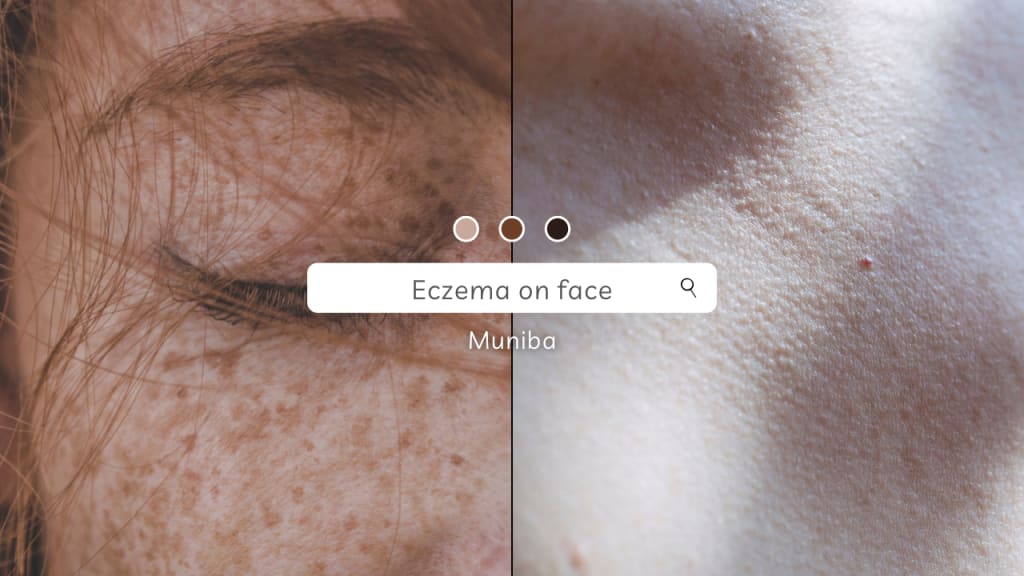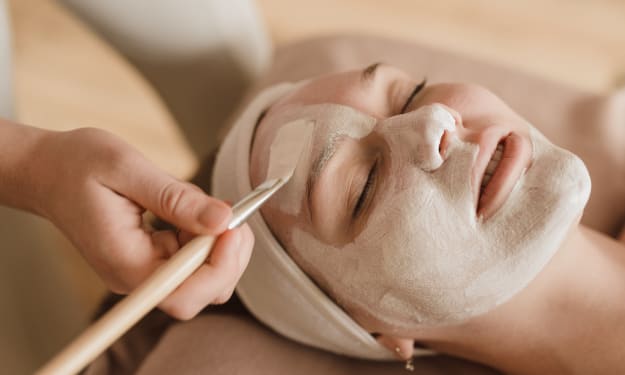Eczema on face
Understanding the causes, symptoms, and Effective treatment options for managing facial eczema

Eczema is a common skin condition that affects millions of people worldwide. It is characterized by dry, itchy, and inflamed skin that can be uncomfortable and even painful at times. While eczema can occur on any part of the body, it is particularly challenging when it affects the face. Facial eczema can cause embarrassment and self-consciousness, which can have a negative impact on a person's overall quality of life. In this article, we will discuss eczema on the face, its causes, symptoms, and treatment options.
Causes of Eczema on the Face:
Eczema on the face is often caused by a combination of genetic and environmental factors. People who have a family history of eczema, allergies, or asthma are more likely to develop the condition. Exposure to certain irritants such as harsh soaps, detergents, and skincare products can also trigger eczema flare-ups on the face. Additionally, environmental factors like cold weather, dry air, and stress can worsen the condition.
Symptoms of Eczema on the Face:
The symptoms of eczema on the face can vary depending on the severity of the condition. However, some of the most common symptoms include:
Dry, red, and itchy skin
Swelling and inflammation
Flaky, scaly, or crusty patches of skin
Rough or bumpy skin texture
Sensitive skin that may burn or sting when exposed to irritants or certain skincare products
Dark circles under the eyes
Treatment Options for Eczema on the Face:
While there is no cure for eczema, there are several treatment options that can help manage the condition and improve the appearance of the skin. The most common treatment options for eczema on the face include:
Moisturize regularly:
One of the most important things you can do to manage eczema on the face is to moisturize regularly. Using a gentle, fragrance-free moisturizer can help keep the skin hydrated, which can reduce the risk of dryness and irritation. It is best to apply moisturizer immediately after bathing or washing your face, as this is when the skin is most receptive to absorbing moisture.
Use topical corticosteroids:
Topical corticosteroids are a type of medication that can help reduce inflammation and itching associated with eczema on the face. These medications are available in different strengths and can be applied directly to the affected areas of the skin. However, it is essential to use these medications as directed by your healthcare provider, as overuse or misuse can lead to side effects.
Avoid triggers:
Avoiding triggers that can cause eczema flare-ups on the face is essential. If you have identified certain irritants or allergens that trigger your eczema, it is best to avoid them as much as possible. This may include avoiding harsh soaps, detergents, and skincare products that contain fragrances or other irritants.
Seek professional treatment:
If your eczema on the face is severe or does not respond to home treatments, it may be time to seek professional treatment. Your healthcare provider may recommend prescription medications, such as immunosuppressants or biologics, to manage your eczema. Additionally, phototherapy, or light therapy, may also be a treatment option for some people with eczema on the face.
Practice good skincare:
Practicing good skincare habits can help reduce the risk of eczema flare-ups on the face. This may include using gentle, fragrance-free skincare products, avoiding hot water when washing your face, and patting the skin dry instead of rubbing it.
Manage stress:
Stress can trigger eczema flare-ups on the face, so managing stress levels is essential. Some effective stress-management techniques include deep breathing exercises, meditation
In conclusion, eczema on the face can be a challenging condition to manage.
About the Creator
Muniba Sajjad
Hi! My name is Muniba. I am a blogger based in Islamabad. I'm just a dreamer






Comments
There are no comments for this story
Be the first to respond and start the conversation.